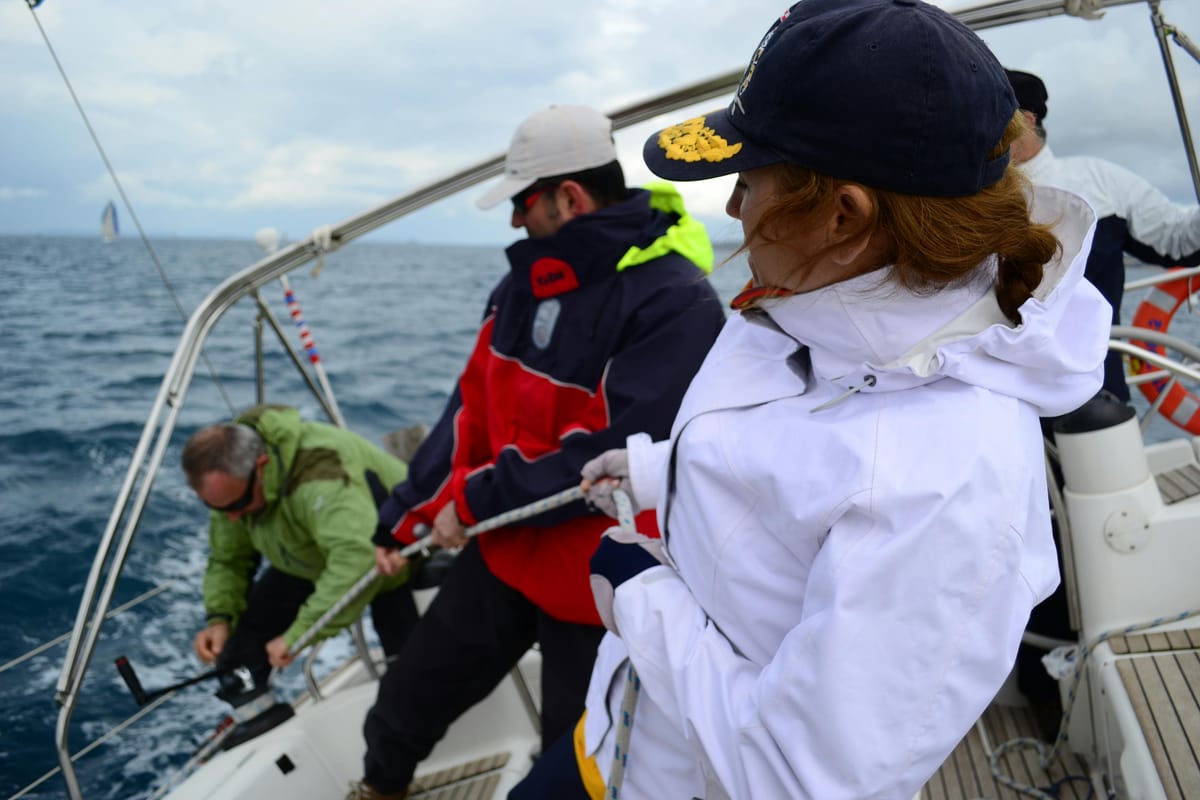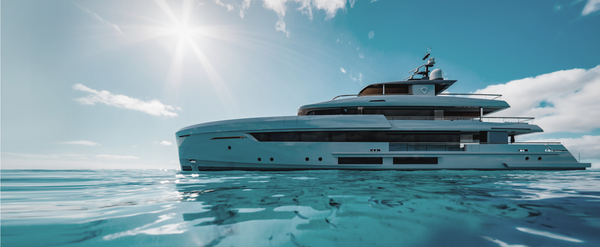Belay That! Obscure Origins of Nautical Expressions

Many expressions we use without a second thought owe their origins to the seafaring world—a realm of adventure, discipline, and survival. Sailing, with its vast vocabulary, has gifted us idioms that slip seamlessly into daily speech, even though most have forgotten their roots. Here, we revisit some of the most captivating nautical phrases, revealing their maritime heritage.
Whether you're a yacht owner who hires vessels out to charter or a seasoned sailor for whom these phrases enter daily use, their origins and history can offer surprising insights into the history of yachting.
Belay That (or Belay That Order)
The phrase “belay that” may evoke images of commanding starship captains, but its origins lie firmly on Earth, aboard ships navigating turbulent seas. To “belay” meant to secure a line using a belaying pin, a practice essential for stabilizing sails. When a captain called out, “Belay that,” it signaled an abrupt change of plan—a command to halt, rethink, or cancel. Today, it remains an elegant way to say “stop,”... albeit steeped in seafaring authority.
Loose Cannon
The unpredictability of a “loose cannon” still conjures visions of chaos today, but for sailors, it was a literal nightmare. A cannon that had broken free from its mooring on a stormy deck could wreak havoc, careening wildly and endangering everyone aboard. As a metaphor, it aptly describes someone whose behavior is reckless and potentially destructive.

Learning the Ropes
On a well-rigged sailing vessel, knowing the intricacies of the ship’s lines and sails was vital for any sailor. New recruits were expected to “learn the ropes” as a foundational skill, ensuring they could navigate both calm seas and turbulent waters. The expression has since sailed into broader usage, signifying competence and mastery of any task.
Down the Hatch
There’s something satisfyingly nautical about raising a glass and proclaiming “Down the hatch.” The phrase originally referred to the practice of lowering cargo through the ship’s open hatch into the hold, a task as routine as it was essential. Its association with drinking likely stems from the maritime tradition of toasting with rum—often a cargo of considerable value.
Toe the Line
In the disciplined world of naval life, precision and obedience were non-negotiable. When sailors were ordered to “toe the line,” they would align themselves neatly along the seams between deck planks, their toes touching the caulked joints. The phrase endures as a symbol of conformity, structure, and order.

Keelhauled
Among the more grim relics of maritime history, “keelhauled” was a form of punishment as severe as it sounds. A transgressor was dragged beneath the ship’s keel, scraping against barnacles and enduring the risk of drowning. Although the practice faded with the rise of more humane standards, the phrase remains a potent metaphor for extreme disciplinary measures.
Room to Swing a Cat
No shipboard feline is implicated here—the “cat” in question is the infamous cat o’ nine tails, a whip used to administer punishment. To have “room to swing a cat” implied that the space was large enough for the whip’s nine knotted cords to be wielded without restriction. Though its origins are grim, today the phrase simply indicates a generous amount of space.
Three Sheets to the Wind
To be “three sheets to the wind” evokes the image of someone swaying and stumbling under the influence of alcohol, and its maritime origin is just as evocative. A “sheet” is a rope that controls a sail, and if three sheets were loose, the ship would lurch uncontrollably, much like a tipsy sailor staggering on deck.

Batten Down the Hatches
When storms loomed on the horizon, sailors would “batten down the hatches,” securing the ship’s entrances with watertight covers fastened by wooden battens. It was a critical step in preparing for turbulent weather. In modern parlance, the phrase reminds us to brace for life’s inevitable challenges.
Hunky-Dory
Few phrases capture a sense of effortless contentment like “hunky-dory.” Its origin is believed to trace back to American sailors who visited Japan and became acquainted with Honcho-dori, a bustling street known for its diversions and pleasures. For sailors on shore leave, it was the embodiment of smooth sailing.
Nail One’s Colors to the Mast
In the heat of naval battle, lowering a ship’s flag—or colors—was a sign of surrender. To “nail one’s colors to the mast” ensured that the flag could not be taken down, symbolizing a refusal to concede. This bold gesture of defiance lives on as a metaphor for unwavering commitment and steadfastness.
Pipe Down
Evenings aboard a ship ended with a simple yet effective signal—the bosun’s whistle, or pipe, indicating that the crew should quiet down and retire for the night. Today, to “pipe down” is to insist on calm, silence, and order, echoing the bosun’s nightly command.
Scrape the Barrel
Naval rations were often less than luxurious, and when provisions ran low, sailors would resort to scraping the remaining fat from the inside of salted meat barrels. What was once a survival tactic now describes situations where one must make do with whatever is available, even if it’s less than ideal.
Davy Jones’s Locker
Few maritime expressions are as haunting as “Davy Jones’s locker.” Referring to the depths of the ocean, it was the final resting place for sailors lost at sea. The legend of Davy Jones, a malevolent sea spirit, has given rise to countless stories, but the phrase itself endures as a poetic way of describing the watery grave beneath the waves.
To explore more about the origins of nautical terminology, A Sea of Words by Dean King is a treasure trove of maritime history and linguistic discovery. Next time you raise a toast or “batten down the hatches” for a challenge, take a moment to appreciate the centuries of seafaring tradition woven into these words.





